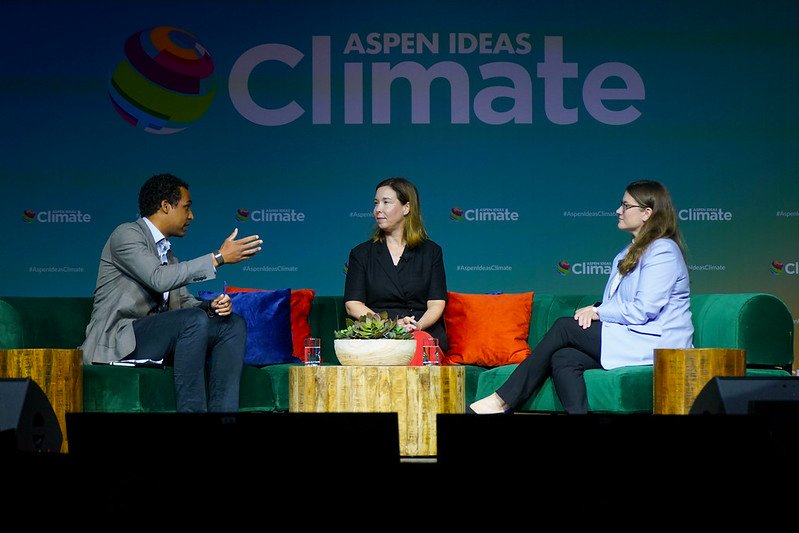If, like me, you’ve been closely following the evolution of how the private sector is thinking about and reacting to the climate challenge, it’s easy to get lost in the details and lose sight of the bigger picture. This week at Aspen Ideas Climate, held for the first time in Chicago, was a good opportunity to zoom out. There, I led a discussion focused on the macro business case for continuing to work on climate.
Two key points stood out to me. The first is that addressing climate change needs to be viewed through a strategic lens rather than as an altruistic act or even an opportunity for short-term financial gain as with tax credits. Today, we are getting a glimpse of the effects of extreme weather and other consequences, but we know the long-term effects will be much more severe. And we can also anticipate that, one way or another, the present disposition of policymakers is bound to change.
“As long as emissions continue to accumulate greenhouse gas in the atmosphere, the climate is going to change, and people are going to respond to those changes,” said Sarah Kapnick, global head of climate advisory at JPMorgan. “So consumer behavior will change in response to that. Physical risks will be altered. Supply chains will have to respond. Business operations will have to respond. Insurance pricing will change.”
Kapnick, who advises the bank’s clients on how to navigate complicated climate realities, said she sees increasing sophistication in the private sector when confronting this challenge. “Conversations about climate are more and more complex and sophisticated… about what does climate mean for my business, for my operations, for business, resiliency, for risk,” said Kapnick.
When and how those effects may play out are hard to predict. As I was leaving Chicago, news broke about the International Court of Justice ruling that countries have a legal obligation to act on climate change—and might be liable for the cost of damages if they fail to do so. While unenforceable at this juncture, the ruling provides precedent and legal reasoning that will likely trickle to other jurisdictions in the years to come. While this ruling focuses on the responsibility of states, soon enough courts will be forced to address what if any liability corporations face.
Another key theme raised during the discussion—and one I’ve encountered frequently when talking to climate folks in recent months—has been the increasing focus on climate action as an avenue for cost savings. Technology like AI can help map opportunities for cost-saving—and emissions reduction. And more modern infrastructure often means more fuel efficient infrastructure.
Lauren Riley, the chief sustainability officer at United, boiled down the business case for climate work in the simple terms of one of the company’s biggest costs: fuel. “Our second largest operating expense is fuel, right behind labor. It’s very significant,” she said, adding that the company spent $12 billion on fuel last year. “We want to find ways that we can control that supply chain, diversify it, find cost effective alternatives and make sure that we’re in control of those really high costs.” At a moment when companies are navigating an array of costs, from high interest rates to unpredictable tariffs, what’s a better business case than saving money?










